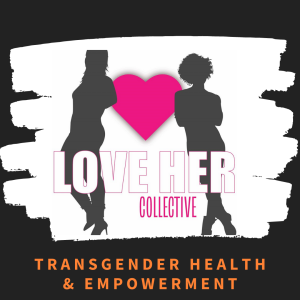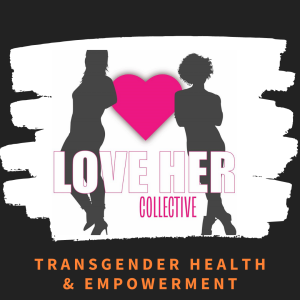Empowering the Love Her Collective: Participatory research with and for transgender women of color


May 2021
In 2019, Professor Kristi Gamarel (Public Health) was awarded a Transgender Health and Empowerment seed grant from IRWG for a participatory research project to enhance and sustain the Love Her Collective, which is a community-academic partnership with the Trans Sistas of Color Project (TSoCP). The Love Her Collective seeks to understand and address the needs of trans women of color in Detroit. The research team includes U-M Public Health researchers Laura Jadwin-Cakmak, Racquelle Trammell, Wesley King, and Gary Harper, and Bré Rivera, Cierra Burks, Lilianna Angel Reyes, Harmony Harris, Julisa Abad, and Latrice Ward of TSoCP. In 2020, the team surveyed 60 trans women of color in the Detroit area to assess employment, financial status, housing, and education.
“As you can imagine, recruitment struggled during COVID-19 but our team was incredible and really worked hard to get the survey out,” noted Gamarel. Results from the survey indicate that access to sustainable income, employment, and housing are major challenges for trans women of color in Detroit. A majority (78%) reported skipping meals or cutting meal size because of lack of money. Housing instability was another major concern for respondents, with nearly half indicating that they are “often” or “always” worried about paying for housing. Notably, 42% of respondents who had worked full- or part-time lost work due to the COVID-19 pandemic and 56% reported employment discrimination in the past year due to being a trans woman.
While roughly one-third of respondents have completed high school or equivalent, 68% of respondents desire to further their education through programs ranging from high school/GED, trade school, college degrees, to graduate degrees. Unfortunately, most respondents who desire to further their education don’t know where to get help to do so. Barriers to continuing education include the cost of tuition, the need to work, personal obligations such as caregiving responsibilities, lack of support, self-doubt, stigma and discrimination, access to information, and resources like transportation. Participants reported ways to address structural vulnerabilities facing their community, which included access to legal and medical gender affirmation, education and employment opportunities, and other basic resources such transportation and housing.
The team noted, “It is imperative that we not put all of this on trans women of color to solve these structural problems. Leaders in organizations such as TSoCP are not exempt from this same systemic oppression yet continuously take on responsibilities to try to heal the consequences for their community. It is unjust and unsustainable. Justice starts with institutional change and adequately resourcing trans women of color to be leaders in this work.”
The Love Her Collective research team and advisory board are working on a list of community-led solutions to address systemic oppression and structural vulnerabilities experienced by trans women of color to guide future public health programs, policy, and research.
For more information, contact Professor Gamarel at kgamarel@umich.edu.
